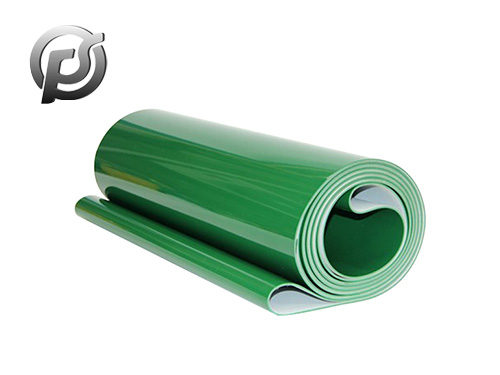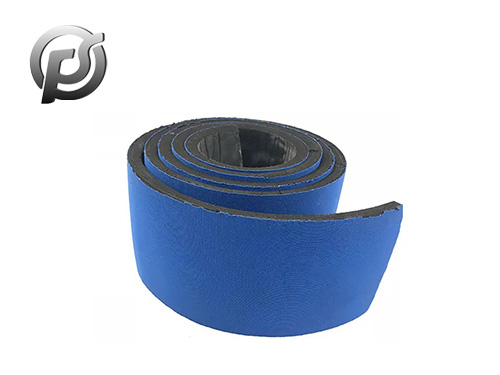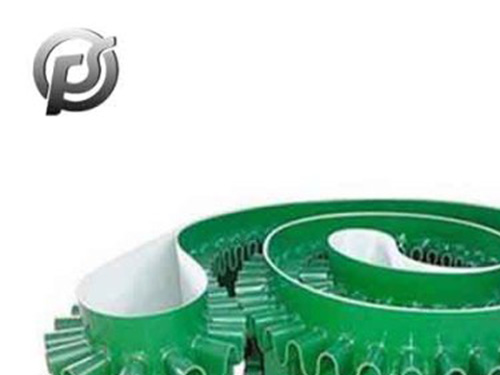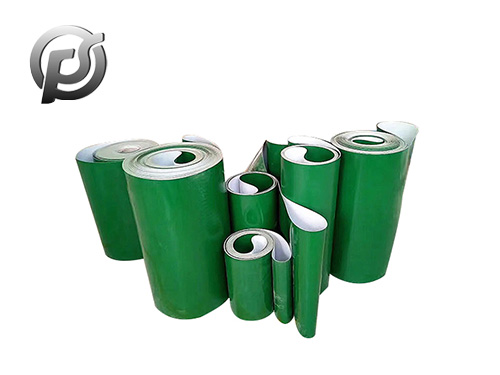Polyester conveyor belts have become integral components in various industries, revolutionizing the way materials are transported and processed. Known for their durability, flexibility, and resistance to abrasion, polyester conveyor belts play a crucial role in enhancing efficiency across different sectors. In this article, we will explore the features, applications, and benefits of
polyester conveyor belts, shedding light on the advancements that make them a preferred choice in material handling systems.
Material Composition and Structure:
Polyester conveyor belts are typically made from a combination of polyester fabric and rubber compounds. This composition provides the belts with excellent tensile strength, flexibility, and resistance to moisture and chemicals. The belts are structured with multiple layers, each serving a specific purpose, such as strength reinforcement and protection against wear.
High Tensile Strength and Durability:
One of the key attributes of polyester conveyor belts is their high tensile strength. This quality allows them to withstand heavy loads and maintain structural integrity over extended periods. The durability of these belts makes them suitable for applications in industries ranging from mining and manufacturing to food processing and logistics.
Versatility in Applications:
Polyester conveyor belts find applications in a diverse range of industries due to their versatility. They are commonly used in bulk material handling, conveying goods such as coal, ore, grains, and industrial products. Their flexibility and adaptability make them suitable for various conveying systems, including flat, inclined, and curved conveyors.
Resistance to Abrasion and Impact:
Polyester conveyor belts are engineered to resist abrasion and impact, making them ideal for tough operating conditions. Whether transporting sharp-edged materials or enduring the constant impact of heavy loads, these belts maintain their integrity, minimizing downtime and maintenance costs.
Low Stretch and Excellent Tracking:
Unlike some other conveyor belt materials, polyester belts exhibit low stretch under heavy loads. This characteristic ensures consistent and accurate tracking of the belt, contributing to smooth and reliable material transportation. The low stretch also reduces the risk of belt elongation, enhancing overall conveyor system efficiency.
Temperature Resistance:
Polyester conveyor belts are designed to operate effectively within a wide temperature range. This feature makes them suitable for applications in industries where temperature variations are common, such as in manufacturing processes or conveying materials through different environmental conditions.
Easy Maintenance and Repair:
Maintaining and repairing polyester conveyor belts is relatively straightforward. The modular design of these belts allows for easy replacement of damaged sections, minimizing downtime and ensuring continuous operation. Routine maintenance tasks, such as cleaning and tracking adjustments, contribute to the longevity of the belts.
Environmental Considerations:
Polyester conveyor belts are often preferred for their eco-friendly attributes. The manufacturing process typically involves energy-efficient methods, and the belts themselves can be recycled, contributing to sustainable practices in material handling systems.
Conclusion:
Polyester conveyor belts have proven to be indispensable in modern material handling, providing a balance of strength, durability, and versatility. As industries continue to evolve, the advancements in polyester conveyor belt technology contribute significantly to the efficiency and sustainability of conveyor systems across the globe. Whether in mining operations, manufacturing plants, or logistics centers, the reliability and performance of polyester conveyor belts play a pivotal role in streamlining processes and enhancing overall productivity.

 PE Conveyor Belts: Characteristics, Applications, and Advantages
PE Conveyor Belts: Characteristics, Applications, and Advantages
 Stone Conveyor Belt: Enhancing Efficiency and Productivity in Material Handling
Stone Conveyor Belt: Enhancing Efficiency and Productivity in Material Handling
 Optimizing Operations with PE Conveyor Belts: Durability, Efficiency, and Versatility
Optimizing Operations with PE Conveyor Belts: Durability, Efficiency, and Versatility